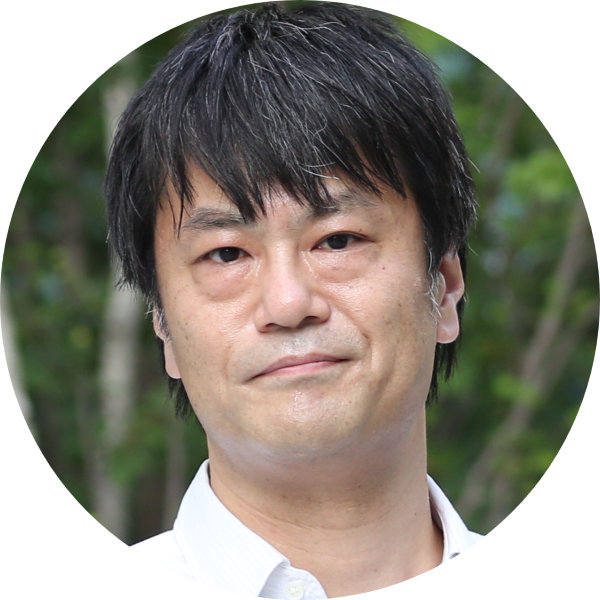Plenary Keynote Speaker Ⅰ

Prof. Kai-Kuang Ma
Fellow of the Singapore Academy of Engineering
Nanjing University of Aeronautics and Astronautics, China
Brief Biography:
Kai-Kuang Ma is a Distinguished Professor at Nanjing University of Aeronautics and Astronautics and a national high-level talent (Category A) in China. He is a Fellow of the Singapore Academy of Engineering and an IEEE Life Fellow. Presently, he serves as Deputy Editor-in-Chief of IEEE Transactions on Image Processing, where he has received the Outstanding Service Award twice. He earned his Ph.D. and M.S. in Electrical and Computer Engineering from North Carolina State University and Duke University. His research focuses on image and video processing, digital signal processing, computer vision, artificial intelligence, and machine learning. Two of his contributions on fast vector search have been adopted by the MPEG-4 video coding standard.
Previously, he was a Professor and Ph.D. supervisor at Nanyang Technological University, Singapore, Singapore Chair and Head of Delegation for the MPEG International Standard, Senior Researcher at the Institute of Microelectronics, Singapore, and DSP R&D Engineer at IBM, USA. He has chaired multiple international conferences and program committees. In 2018, he received the Singapore Service Award as a leader of research team.
Speech Title:
AI-Powered Imaging: Transforming the Future of Visual Experience
Abstract:
Ultra-high-resolution displays are redefining expectations for visual quality, driving the need for innovations that surpass the limits of traditional signal processing. At the same time, artificial intelligence—particularly deep learning—has introduced powerful new paradigms for enhancing, compressing, and optimizing visual content. This keynote explores how classical imaging science and AI can converge to create next-generation imaging solutions that neither could achieve alone. By fusing domain expertise with data-driven intelligence, we can unlock transformative advances in fidelity, efficiency, and adaptability—paving the way toward a new era of AI-powered imaging and immersive visual experiences. I will share my perspectives and research experiences on this rapidly evolving frontier.
Plenary Keynote Speaker Ⅱ

Prof. Tatsuya Kawahara
Former President of APSIPA
Kyoto University, Japan
Brief Biography:
Tatsuya Kawahara received B.E. in 1987, M.E. in 1989, and Ph.D. in 1995, all in information science, from Kyoto University, Kyoto, Japan. From 1995 to 1996, he was a Visiting Researcher at Bell Laboratories, Murray Hill, NJ, USA. Currently, he is a Professor of School of Informatics, Kyoto University. From 2020 to 2023, he was the Dean of the School. He has published more than 500 academic papers on automatic speech recognition, spoken language processing, and spoken dialogue systems, with total citations of more than 10,000. He is the Past-President of APSIPA, the Secretary General of ISCA, and a Fellow of IEEE.
Speech Title:
Making a Robot to Communicate with Social Signals
Abstract:
Chatbots or dialogue systems have been improved impressively thanks to large language models, but it is not straightforward to implement them into a communicative robot to realize natural spoken dialogue with naïve human users. One of the important features, missing in text-based systems, is social signals, which provide feedback in a non-verbal manner. It is desirable for a robot to detect them from human speech and also generate them by themselves. We have explored for a human-like social robot ERICA in this direction. Specifically, we have investigated generation of backchannels in appropriate timing, form and prosody, and demonstrated it significantly improves the dialogue experience. We also explore generation of shared laughter, which shows empathy to the dialogue partner. These studies confirm the social signals are fundamental in human communications.
Plenary Keynote Speaker Ⅲ

Prof. Toshihisa Tanaka
Vice President of APSIPA
Tokyo University of Agriculture and Technology, Japan
Brief Biography:
Toshihisa Tanaka received the B.E., M.E., and Ph.D. degrees from the Tokyo Institute of Technology in 1997, 2000, and 2002, respectively. From 2000 to 2002, he was a JSPS Research Fellow. From October 2002 to March 2004, he was a Research Scientist at RIKEN Brain Science Institute. In April 2004, he joined the Tokyo University of Agriculture and Technology (TUAT), where he is currently a Professor of Electrical Engineering and Computer Science. In April 2025, he was appointed Vice-Trustee and Assistant to the President of TUAT. He also heads the Research Unit of Informatics for Human-Animal Interaction at the One Welfare Research Institute of TUAT.
He was a Royal Society Visiting Fellow at the Communications and Signal Processing Group, Imperial College London, U.K., in 2005, and a Visiting Faculty Member in the Department of Electrical Engineering at the University of Hawaii at Manoa in 2011.
His research interests include signal processing and machine learning, with particular emphasis on brain and biomedical signal analysis, brain–computer interfaces, and human–animal interaction. He is a co-editor of Signal Processing Techniques for Knowledge Extraction and Information Fusion (Springer, 2008) and the leading co-editor of Signal Processing and Machine Learning for Brain–Machine Interfaces (IET, 2018).
Prof. Tanaka has served as an Associate Editor or Guest Editor for several international journals, including IEEE Access, Neurocomputing, IEICE Transactions on Fundamentals, Computational Intelligence and Neuroscience, IEEE Transactions on Neural Networks and Learning Systems, Applied Sciences, Advances in Data Science and Adaptive Analysis, and Neural Networks. He also served as Editor-in-Chief of Signals. He was the General Co-Chair of the Asia-Pacific Signal and Information Processing Association Annual Summit and Conference (APSIPA ASC) held in Tokyo in 2021. He served as Vice President for Member Relations and Development of APSIPA until 2025.
He is currently a Senior Area Editor of IEEE Signal Processing Letters. He is serving as the General Chair of the 2028 IEEE International Conference on Acoustics, Speech, and Signal Processing (ICASSP 2028), to be held in Tokyo, Japan. He is a Senior Member of the IEEE and a member of IEICE, APSIPA, the Society for Neuroscience, and the Japan Epilepsy Society. He is also the Co-founder and CTO of Sigron, Inc.
Speech Title:
Decoding Internal States via Biosignals for Speech and Social Interaction
Abstract:
In this talk, we present our latest research on Human-Computer Interaction (HCI) paradigms that leverage biosignals to decode human internal states. First, we discuss speech decoding and synthesis from electrocorticogram (ECoG) signals. We demonstrate that Transformer-based models can successfully reconstruct speech waveforms and estimate linguistic content from neural activity, offering a direct communication channel for brain-computer interfaces. Second, we expand the scope to social interaction, focusing on the real-time estimation of human inner states such as attention and emotion. While current Large Language Models (LLMs) excel at text processing, they often lack access to non-verbal context. We introduce a multi-sensor approach that combines observable data with "unfalsifiable" physiological signals to bridge this gap, facilitating more adaptive and empathetic AI systems. Finally, we briefly touch upon our ongoing exploration of applying these decoding techniques to inter-species communication, aiming to visualize the internal states of animals through biosignals.